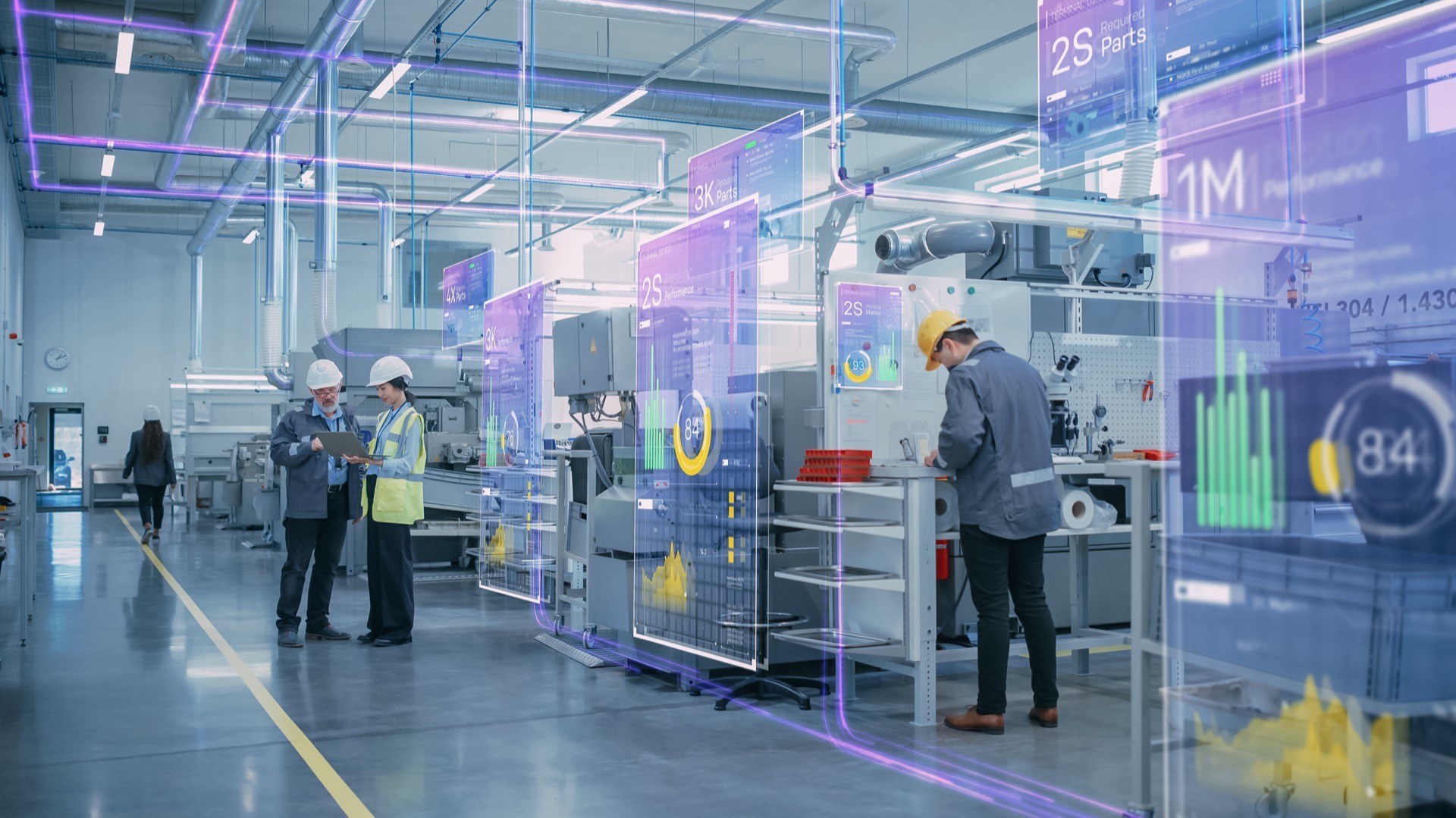Digitalization is an integrator of value creation
The digitalization of production processes brings massive efficiency gains and leaps in productivity. The main drivers of these positive developments towards the Smart Factory are Big Data Mining and Big Data Analytics, i.e. structured data collection and data analysis. With an improved data pool, decision-makers in the company always have full transparency of production processes, can take advantage of the opportunities offered by networked value chains and manage the company with maximum efficiency. Important aspects are the vertical and horizontal integration of R&D, production and supply chain management. This creates highly efficient value networks for the development and production of new products and services.
Talk to us.
Every positive business relationship begins with a good conversation. Leave your email address. We are looking forward to get in touch.
Digitalization is a leadership issue
But where does this scenario leave the employees and, above all, where does it leave the leadership of these employees by management? After all, it is still people who determine the quality of value creation in manufacturing, not only because completely AI-controlled production is still a pipe dream, but also because it is a management task to determine the purpose of value creation and its framework conditions. Companies that want to take advantage of the opportunities offered by digitalization need new organizational and working principles that focus on innovation issues.
Digitalization is first a leadership issue and technological aspects come second. Digital processes are processes reproduced thousands of times at high speed, accelerated by lean concepts and short lead times. But if the process is poorly designed or implemented, the result is merely poor quality reproduced thousands of times. People are responsible for designing and implementing processes – and they need leadership. Bad leadership = bad employee performance, bad processes = bad results! This old equation does not change in the digitized enterprise.
Digitalization means using technology and data sensibly
Digitalization and Big Data quickly become a big financial waste when, for example, the collected machine data finds its final resting place in huge data graveyards on our company servers. It’s not about collecting data, it’s about people making sense of data. To do this, they need guidance and decision-making aids – in other words, leadership. This is precisely why the tools and software alone that exist for Big Data and other areas of digitalization are of little help. ConMoto works with the management of your company to develop an individual digitalization strategy and implements it. A company can only solve problems and make progress if problem solutions are tailored to specific requirements. Only then will digitalization lead to the productivity gains that technological change promises.

Leadership in the digital enterprise
Leadership is more important than ever in the digitized enterprise. And leadership means:
- Manage flexibility and make every employee fit for changing requirements.
- Reduce complexity and create processes that adequately map complex requirements.
- Make basic competencies and benefits of Lean tangible and transparent in everyday work.
- Invest in digital learning processes for employees and managers. Humans are in charge of digital production and technology; humans are not just mere tools of technological change.
- Provide guidance to production teams to balance agility and process structure.
- Facilitate cohesion by defining a shared goals and perspectives.




 Deutsch
Deutsch